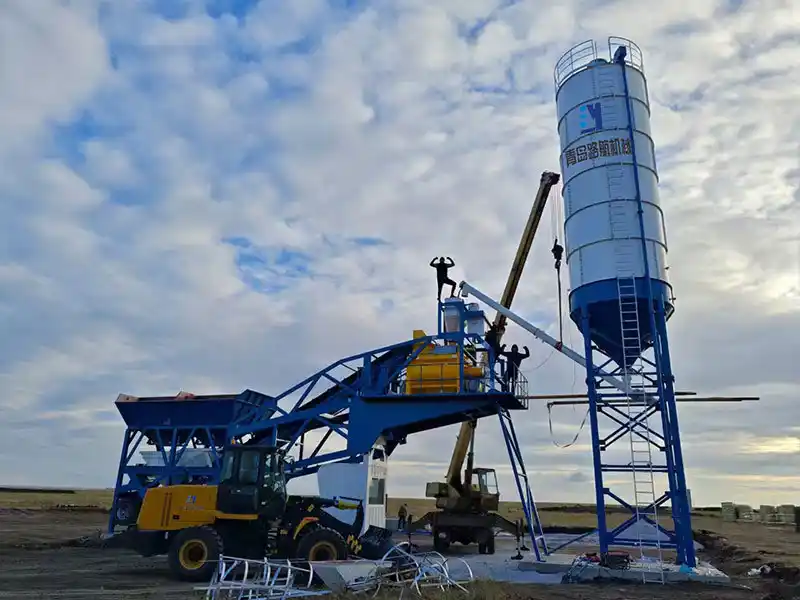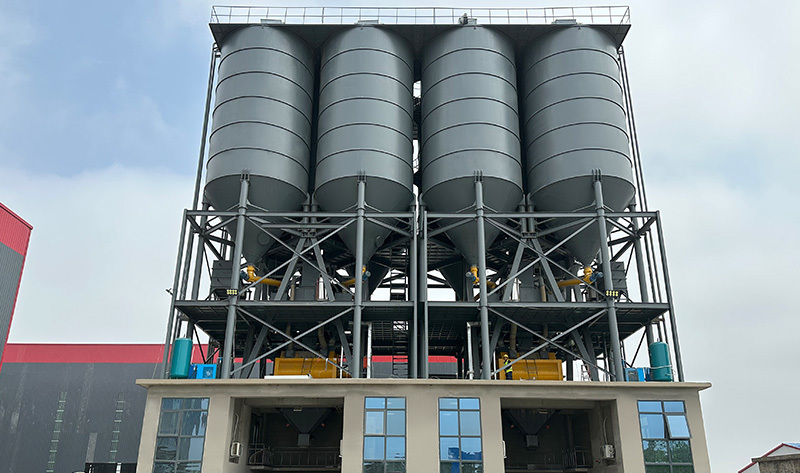How Mortar Grout Pumps Can Save Time and Money on Projects
Release time:
May 01,2025
How Mortar Grout Pumps Can Save Time and Money on Projects Introduction to Mortar Grout Pumps In the modern construction landscape, efficiency and cost-effectiveness are paramount. **Mortar grout pumps** have emerged as essential tools that can help contractors save both time and money on various engineering and building projects. These powerful machines simplify the mixing, transporting, and ap

How Mortar Grout Pumps Can Save Time and Money on Projects
Introduction to Mortar Grout Pumps
In the modern construction landscape, efficiency and cost-effectiveness are paramount. **Mortar grout pumps** have emerged as essential tools that can help contractors save both time and money on various engineering and building projects. These powerful machines simplify the mixing, transporting, and application of mortar and grout, making them invaluable in areas such as masonry, paving, and general construction work.
The Role of Mortar Grout Pumps in Construction
Understanding Mortar and Grout
Before diving into the benefits of mortar grout pumps, it’s crucial to understand the materials themselves. **Mortar** is a mixture of sand, water, and cement, designed to bind bricks and stones. **Grout**, on the other hand, is a fluid form of concrete used to fill gaps and provide support for structures like tiles and masonry.
Why Use Mortar Grout Pumps?
Using mortar grout pumps has gained popularity due to their efficiency and precision. Contracting firms often face challenges with manual mixing and applying mortar and grout, which can be time-consuming and labor-intensive. Pumps automate these processes, reducing labor costs and minimizing wastage, ultimately leading to significant savings.
Key Benefits of Mortar Grout Pumps
1. Increased Efficiency
One of the primary advantages of mortar grout pumps is the **increase in efficiency**. These machines can pump large volumes of mortar and grout quickly, allowing workers to focus on other essential tasks. By automating the mixing and application processes, projects can progress faster, ultimately shortening timelines.
2. Cost Savings
Investing in a mortar grout pump can lead to substantial **cost savings**. The reduction in labor hours, combined with less material wastage, directly impacts the project’s bottom line. With fewer workers needed for mixing and applying materials, contractors can allocate resources more effectively.
3. Consistent Quality
Mortar grout pumps ensure a **consistent mix** of materials, which is essential for quality construction. Variations in manual mixing can lead to inconsistencies, affecting the structural integrity of the build. With a pump, the ratio of sand, cement, and water remains uniform, yielding superior results.
4. Versatility in Applications
These pumps are not limited to a single application; they are incredibly versatile. From filling gaps in tiles to performing structural repairs, mortar grout pumps can handle various tasks in construction and engineering. Their adaptability makes them suitable for both small-scale projects and large commercial builds.
Choosing the Right Mortar Grout Pump
Factors to Consider
When selecting a mortar grout pump, several factors come into play:
- **Pump Type**: There are different types of pumps, including electric, pneumatic, and hydraulic. Each has its advantages and is suited to different types of projects.
- **Output Capacity**: Depending on the size of the project, you’ll need a pump with an appropriate output capacity to ensure efficiency.
- **Portability**: Consider the weight and mobility of the pump, especially if it will be used on various job sites.
Popular Models in the Market
Several manufacturers offer high-quality mortar grout pumps. Notable models include:
- **Graco 262800**: Known for its reliability and ease of use, this electric pump is ideal for small to medium-sized projects.
- **Coprocessor Pumps**: These hydraulic pumps are designed for heavy-duty applications, perfect for larger construction sites.
How to Operate Mortar Grout Pumps Efficiently
Preparation Before Use
Proper preparation is critical for efficient operation. Ensure that all materials are readily available and that the pump is set up correctly. Check for any leaks and make sure all components are functioning smoothly.
Mixing and Filling the Pump
Achieving the correct mix ratio is vital. Follow the manufacturer’s guidelines for mixing mortar or grout to ensure optimal performance. Fill the pump carefully, avoiding spills or overfilling, which can lead to inefficiencies.
Application Techniques
When applying mortar or grout, maintain a steady pace to avoid uneven application. Utilize the pump’s features to control the flow rate, ensuring uniform coverage across the surface.
Common Applications of Mortar Grout Pumps
1. Masonry Construction
In masonry work, mortar grout pumps streamline the process of laying bricks and blocks. By providing a consistent and efficient application, these pumps help achieve tighter joints and stronger structures.
2. Tile Installation
For tile installations, grout pumps facilitate the filling of gaps between tiles, ensuring a durable and aesthetically pleasing finish. The precision offered by these pumps is especially beneficial for intricate tile designs.
3. Foundation Repairs
Mortar grout pumps are frequently used in foundation repairs. They allow for the efficient filling of voids and cracks, enhancing the structural integrity of buildings.
Maintaining Mortar Grout Pumps
Regular Maintenance Tips
To keep your mortar grout pump in optimal condition, regular maintenance is essential. This includes:
- **Cleaning**: After each use, thoroughly clean the pump to prevent any buildup of materials that could clog the system.
- **Inspecting Components**: Regularly check hoses, seals, and other components for wear and tear to ensure the pump operates smoothly.
Potential Issues and Solutions
Common issues include blockages and inconsistent flow. If you encounter these problems, inspect the hoses for clogs and ensure that the mixing ratio is correct. Proper troubleshooting can save time and prevent costly delays.
Conclusion
**Mortar grout pumps** are invaluable assets in the construction industry, offering unparalleled efficiency, cost savings, and versatility. By understanding their benefits, proper operation, and maintenance, contractors can enhance their workflows and deliver projects more effectively. Investing in a quality mortar grout pump not only streamlines operations but also ensures consistent quality, ultimately leading to greater client satisfaction and business success.
FAQs
1. What types of projects benefit from mortar grout pumps?
Mortar grout pumps are beneficial for various projects, including masonry construction, tile installation, and foundation repairs.
2. How much can I save by using a mortar grout pump?
Savings vary based on project size and complexity, but many contractors report significant reductions in labor costs and material wastage.
3. Can I use a mortar grout pump for different types of materials?
Yes, many pumps are designed to handle various types of mortar and grout, but always consult the manufacturer’s specifications.
4. How do I maintain my mortar grout pump?
Regularly clean the pump after use, inspect components for wear, and follow the manufacturer's maintenance guidelines.
5. Are mortar grout pumps easy to operate?
Yes, most mortar grout pumps are designed for ease of use, but proper training and understanding of the equipment are recommended for optimal performance.
Key words:




